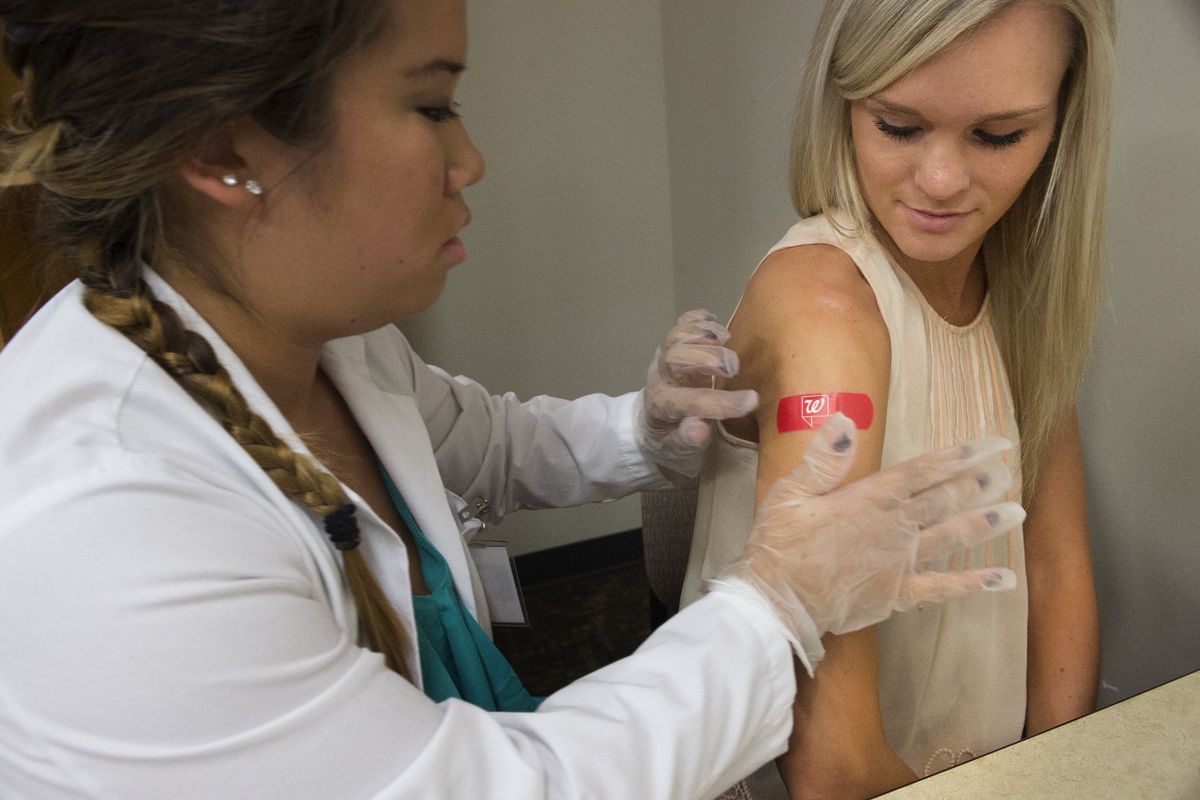WSU Spokane dispenses free flu vaccine at health fair

Katie Gilsdorf sat down with a pharmacy student Thursday, exchanged some paperwork and got her first flu shot ever.
It only hurt for about a second, said Gilsdorf, WSU Spokane’s student involvement coordinator.
Flu shots were free for students and staff members at WSU Spokane, part of the school’s health fair. Visitors also could receive cholesterol tests, nutritional assessments and health screenings.
The line for flu shots went out the door. The College of Pharmacy brought along 120 vaccinations and Walgreens brought 180.
“Every year the flu makes people lose days at work and school,” said Colleen Terriff, a College of Pharmacy faculty member.
Students in the medical fields are expected to get the shots to protect themselves as well as their patients, who may have weak immune systems.
“I don’t want to spread the flu to them,” Terriff said.
She said the flu sets up shop in the lungs and could turn into viral pneumonia or other respiratory diseases. Often, people may think they have a cold and don’t seek treatment.
“Despite our best efforts, people die of the flu,” she said.
On Wednesday, Panhandle Health District reported its first flu death of the 2014-15 season. A Kootenai County woman over 65 died from complications of the flu.
According to the federal Centers for Disease Control and Prevention, flu activity peaks between December and February, although flu season could begin as early as October and end as late as May.
Last year, Terriff got a flu shot but still got the flu. She said she only was sick for about 12 hours, though, because the vaccine helps the body’s response even if it doesn’t stop the flu.
About 10 percent of the population will get the flu every year.
“The odds are, within a decade you will have been exposed to the flu,” she said.
The vaccine does not stop patients from getting the common cold, other respiratory ailments or even enterovirus, a serious respiratory illness that has affected many people nationally this year.
Terriff recommends vaccines to anyone over 65 or younger than 5, those with diabetes, lung or kidney disease or other conditions, Native Alaskans and Americans, obese people and pregnant women. Infants younger than 6 months can’t be given the vaccine, but when a pregnant mother gets the shot it transfers those antibodies to her baby.
Terriff said everyone should talk to their health provider or pharmacist about what kind of flu vaccine they receive. She said it’s also a good time for adults to discuss what other vaccines they may need: tetanus, shingles or other shots.
“You can get a lot of vaccines at the same time,” she said.